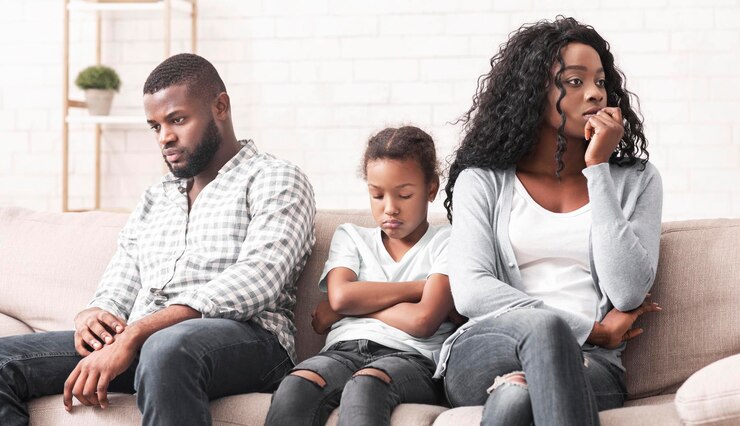Why Staying for the Kids Isn’t Always the Noble Choice

There’s a narrative many parents cling to: “We’re staying together for the children.” It sounds honourable, even sacrificial. And often, it is. But beneath this seemingly selfless choice can lie years of silent suffering, tension-filled homes, and children growing up confused about what love should look like.
The truth is, staying in a loveless, emotionally distant, or toxic relationship can do more damage than the heartbreak of separation. Sometimes, the bravest and kindest thing you can do — for yourself and your children — is to let go.
The Myth of the Perfect Two-Parent Household
 While two involved parents are ideal, the quality of the relationship between them matters far more than the quantity of shared space. Children are incredibly perceptive. They notice the silent treatments, the avoidance, the tension in the air.
While two involved parents are ideal, the quality of the relationship between them matters far more than the quantity of shared space. Children are incredibly perceptive. They notice the silent treatments, the avoidance, the tension in the air.
Growing up in an environment where love feels cold or forced can distort their understanding of healthy relationships.
What Children Really Need
Children thrive in environments that feel safe, emotionally stable, and predictable. That safety can exist in a single-parent home or between two co-parenting adults who prioritise peace over pretense. What children don’t need is to become emotional referees, tiptoe around arguments, or grow up believing love is endurance, not joy.
Modeling Relationships That Heal
As parents, we’re not just raising children — we’re shaping future partners, parents, and friends. If you stay in a strained relationship “for the kids,” ask yourself: what are they learning about love, partnership, and self-worth? Sometimes, choosing to separate can be the ultimate lesson in boundaries, respect, and courage.
When Separation Brings Peace
Separation doesn’t always equal trauma. In many cases, it brings clarity, healing, and a renewed sense of self for both parents and children. Co-parenting with mutual respect — even if apart — can foster more stability than remaining in a household riddled with emotional absence.
The Importance of Intentional Transitioning
If separation becomes the path forward, intentionality is key. Seek professional guidance if possible. Communicate openly with your children in age-appropriate ways. Reassure them that they are loved, seen, and will never have to choose sides.
The goal isn’t to create a perfect ending, but a healthier beginning.
It’s Not a Failure, It’s a Shift
Ending a relationship isn’t an admission of failure — it’s a recognition of truth. It’s choosing peace over pretense, authenticity over appearances. And often, it’s choosing your child’s emotional wellbeing over society’s expectations.
Staying for the kids may feel noble, but sometimes it perpetuates pain. Your children deserve to witness love that is alive, even if it’s apart. And you deserve a life that reflects joy, not just sacrifice.
When the spark is gone, don’t stay stuck in the ashes. Choose warmth — even if it means lighting a new flame somewhere else.




